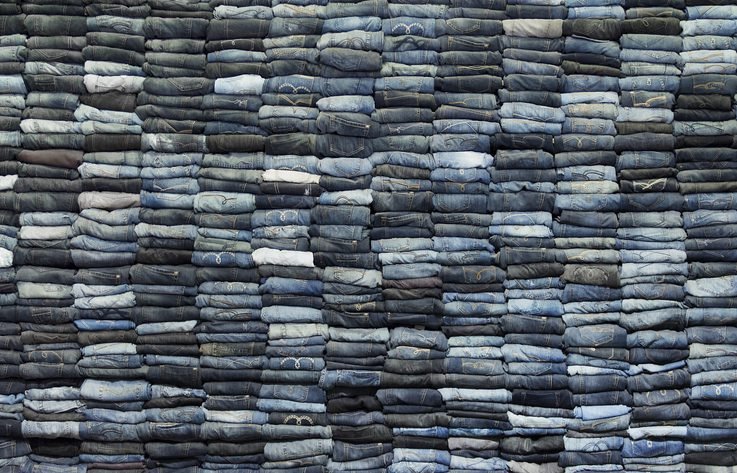Textiles 2030
Over the next decade, Textiles 2030 will slash the environmental impact of UK clothing and home fabrics through practical interventions along the entire textiles chain.
With businesses responsible for over 60% of UK clothing sales, many reuse and recycling businesses, government and knowledge partners committed to taking action through the WRAP-led voluntary agreement, there is the real potential for large-scale change.
Textiles 2030 is giving business the opportunity to work together to create a truly circular use of textile products and material in the UK.
92 signatories have committed to Textiles 2030 in just six months, including brands and retailers, reuse and recycling organisations and affiliates. Major household names include ASOS, Boohoo, Dunelm, John Lewis, M&S, New Look, Next, Primark, Sainsbury’s, Ted Baker, Tesco and The Salvation Army.
This means 62% of all clothing put on the UK market is represented by Textiles 2030 signatories who are working towards science-based sustainability targets to minimise their environmental impact.
The agreement is bringing together organisations for action, collaboration and communication via Working Groups and a Signatory Resources Platform.
The Metrics Working Group, made up of experts across Textiles 2030 organisations, has begun work to determine the scope, priority features, and improvement actions which will be captured by the Textiles 2030 Footprint Calculator by early 2022.
Working groups have provided policy insights to help inform Defra consultation on wider textiles policy, and specified the evidence and insights needed for the transition to a circular economy, including through customer engagement.
Textiles Action Week
WRAP is coordinating a week of action (18-22 October 2021) by industry, providing an opportunity for businesses to show what they are doing to reduce their impact on the planet.
A highlight of the week will be The Change in Fashion and Textiles webinar on Wednesday 20 October, introduced by Textiles 2030 ambassador Baroness Young of Hornsey OBE.
The webinar will highlight the power of collaboration and action, new insights on what is needed to halve the carbon impact of new products and reduce water footprint by 30% and testimonials from signatories as to why they have joined Textiles 2030.
‘There is an urgent need for us to protect people and planet from the damaging and unsustainable way we produce and consume clothing and textiles. Innovative, creative and committed collaboration is the key, and in effect the only way can we succeed in minimising our impact.
‘In just six months, Textiles 2030 has united businesses across the UK and worked with them to take the critical steps needed to transform business practices swiftly and permanently and to fulfil climate goals. What WRAP and Textiles 2030 signatories have achieved so far and the plans which influential brands have for the future serve as an inspiration to us all. In the run up to COP 26, environmental sustainability is rightly at the forefront of industry minds. Every fashion and textile business in the UK has to act now to help us avoid catastrophic climate change. Signing up to Textiles 2030 and acting on that commitment is a big, significant step towards achieving that aim.’
BARONESS YOUNG OF HORNSEY OBE
Crossbench peer, chancellor of the University of Nottingham and an advocate for sustainable textiles
 Play Video about This Rock Might Just Save The World
Play Video about This Rock Might Just Save The World Play Video about Play 2 hours of rock
Play Video about Play 2 hours of rock Play Video about Play 2 hours of brook
Play Video about Play 2 hours of brook Play Video about Play 2 hours of sheep
Play Video about Play 2 hours of sheep











































